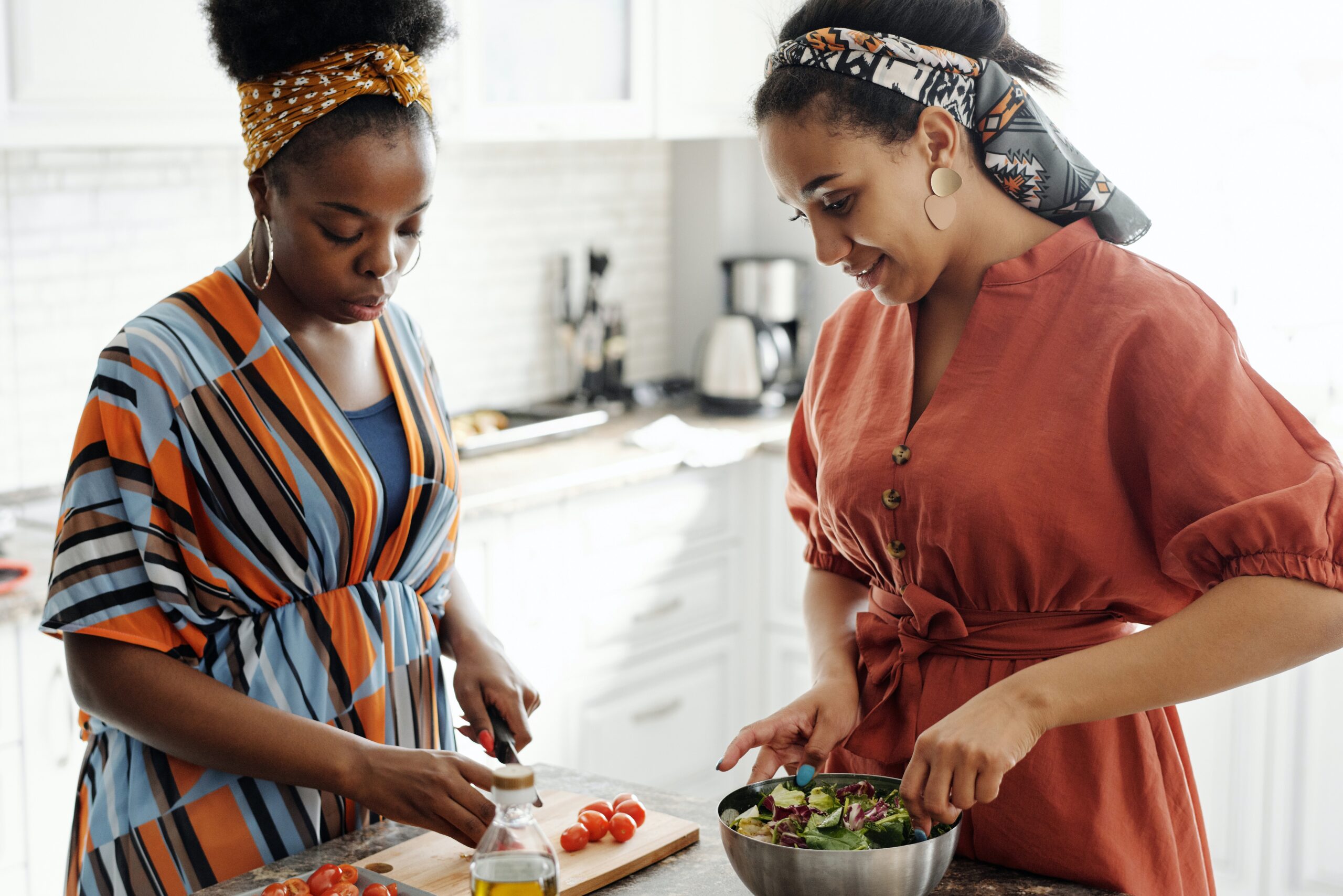Eating Well During Cancer Treatment

Cancer treatments including chemotherapy, radiation and hormonal therapy often cause a range of side effects that can impact a person’s ability and desire to eat. Some clients continue to enjoy food throughout, but for others, nausea, diarrhea, constipation, mouth sores and other issues can make eating well during cancer treatment very difficult.
Food recommendations during treatment may be different than what you are used to because the goal is usually to prevent weight loss. High-calorie and high-protein foods help the body get the nutrients needed to heal, fight infection and tolerate the side effects of treatment. Specific guidelines will depend on the type of cancer you have and the treatment you are receiving, but here are some general strategies to help with the most common eating challenges.
Appetite Changes
During treatment, you may feel less hungry than usual or become full shortly after you start eating. To help you avoid weight loss due to a decreased appetite, try to:
- Eat small, frequent meals throughout the day selecting high-protein, high-calorie foods as much as possible.
- Eat your main meal in the morning when appetite and energy levels are often the highest.
- Stay hydrated between meals to avoid filling up on beverages during mealtimes.
- Try smoothies, soup and liquid meal replacements if solid food isn’t appetizing.
- Create a pleasant, relaxed setting for meals—in front of a window, by candlelight or while watching a favourite show.
Nausea and Vomiting
Your doctor may prescribe anti-nausea medication if the thought of eating is making you feel sick, but here are some other modifications that can help:
- Start with juice, broth or other clear liquids.
- Choose plain foods like bread, crackers and fruit or whatever appeals to you.
- Eat small, frequent meals so you don’t overload your stomach.
- Avoid food with strong smells, or to limit odours, serve food cold or at room temperature and open windows to circulate air in eating areas.
Constipation
Chemotherapy, medications, dehydration and minimal physical activity can all cause constipation in cancer patients. To help alleviate your discomfort:
- Drink lots of fluids aiming for 64 ounces a day and eating water-rich foods like cucumber, melon, citrus fruit and tomatoes will also help you stay hydrated.
- Eat prunes or drink prune juice–apple juice can also be effective if it’s preferred.
- Add more vegetables, legumes and other fibre sources to your meals.
- When possible, increase physical activity levels.
- Talk to your doctor before trying fibre supplements, stool softeners or laxatives.
Diarrhea
Bowel changes often occur during various cancer treatments. If you are experiencing diarrhea, here are some tips that can help:
- Choose soft, low-fibre foods like soup, eggs, yogurt, cottage cheese, white bread, pasta or rice to slow down your bowels.
- Avoid hot meals which can speed up the movement of food through the digestive system.
- Avoid caffeine and alcohol.
- Talk to your oncologist or health team before using any over-the-counter diarrhea medications.
Changes in Taste
Cancer treatment can make food taste metallic, overly salty, sweet or bitter. Other people may lose their sense of taste altogether. To help combat some of these changes:
- Try vegetarian protein sources like beans, lentils, eggs and tofu if meat is unappealing.
- Use plastic utensils instead of metal options and avoid canned food in tins to reduce the metallic taste.
- If you’re experiencing a loss of taste, increase the amount of marinade, herbs, spices and seasoning in your cooking.
- Adjust bitter flavours with salt or sugar.
- Chew gum or hard candy to change the flavour in your mouth before eating.
Dry Mouth or Mouth Sores
Many cancer patients experience a dry mouth or mouth sores that can make eating and drinking uncomfortable. To help with this side effect:
- Rinse your mouth with water before and after meals.
- Eat soft, bland foods like oatmeal, soup, bananas, mashed potatoes and scrambled eggs.
- Avoid spicy or acidic food.
- Add gravy or other sauces to soften food.
- Serve food at room temperature to prevent irritation.
- Try protein and meal-replacement shakes or use a blender to puree meals.
- Suck on hard candy, popsicles or ice chips to produce more saliva.
- Avoid all alcohol including alcohol-based mouthwashes.
While undergoing cancer treatment, food choices will help you maintain your energy, eat more comfortably and support your recovery. Although these may not always feel like the most balanced or nourishing options, it is important to maintain your calorie, protein and fluid intake.
Be prepared for trial and error, focus on hydration on the difficult days and do your best to minimize your stress around eating during this challenging time. Always speak to your doctor or a dietitian for more specific recommendations based on your type of cancer and individual treatment plan.
A dietitian or personal support worker at VHA Home HealthCare may be able to help you create a meal plan based on your specific needs or with light meal preparation. Contact VHA’s Enterprise Health Solutions team at 416-489-2500 ext. 4649 or by email at ehs@vha.ca for more information on our services. You may even have coverage for these services through an extended health benefit plan.
